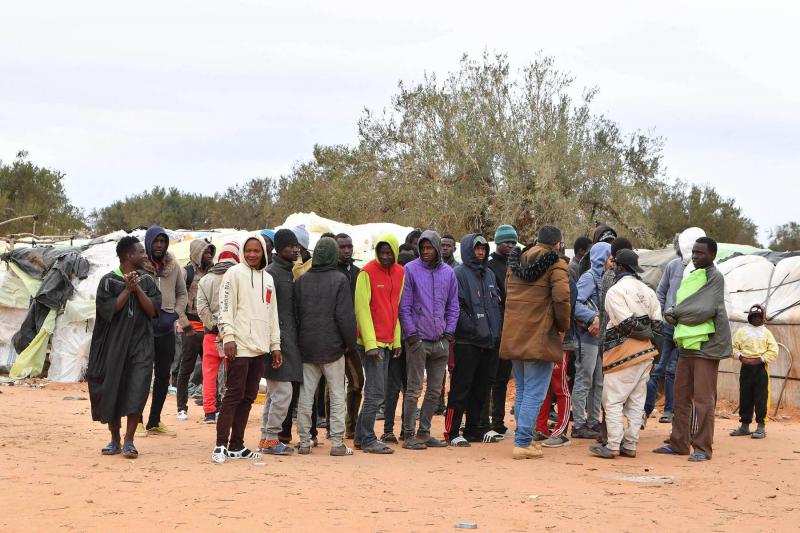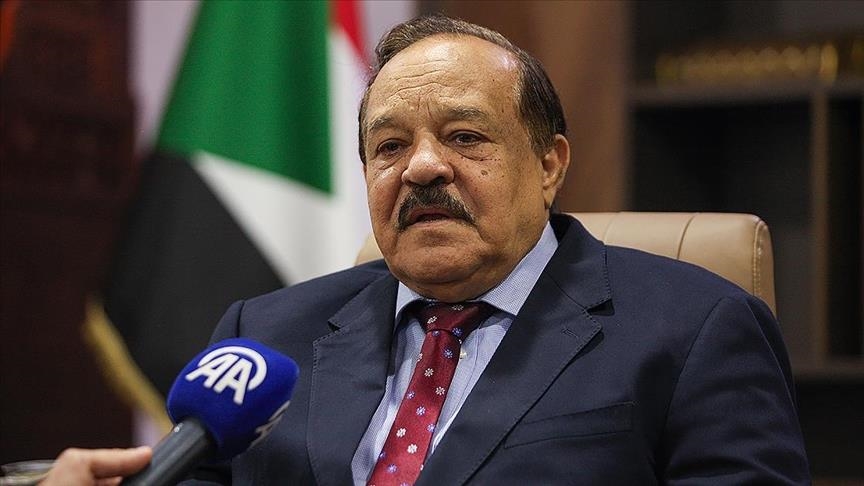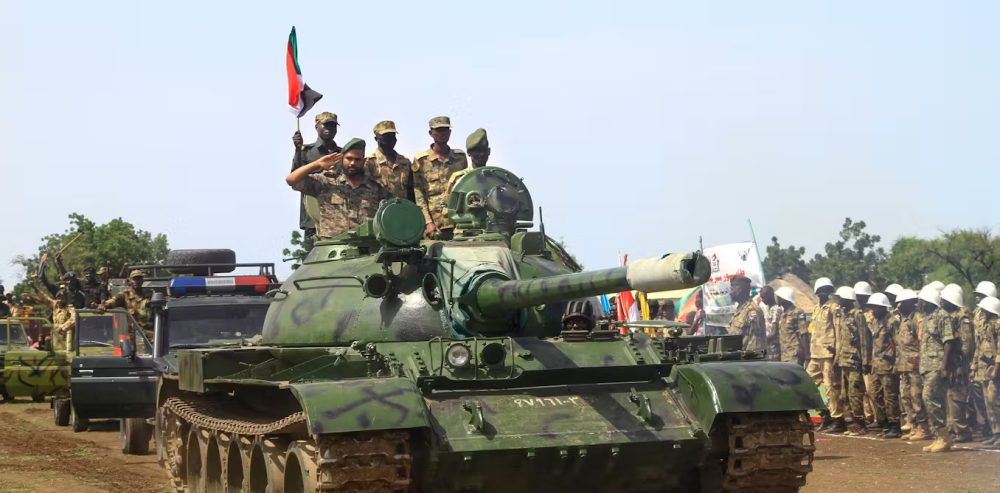AfrikanTrust
In the olive groves of Sfax’s El Amra and Jebniana districts, where the rustling of leaves once marked the rhythm of agricultural life, now lie traces of a humanitarian crisis unfolding in silence and shadow. Over the weekend, Tunisian security forces launched a sweeping nighttime operation to dismantle sprawling migrant encampments, targeting over 5,000 irregular migrants—mostly from sub-Saharan Africa—who had made temporary homes amid the trees and dust.
From 8 p.m. Saturday to the early hours of Sunday, hundreds of officers from the National Guard, Public Security, and Civil Protection descended on Henchir Boufarhat, a site emblematic of Tunisia’s growing role in the shifting geopolitics of migration. Bulldozers tore through makeshift shelters. Trucks hauled away debris. Arrests were made. Children were carried away in arms. But while the camps may be gone, the forces that created them remain entrenched—and potentially explosive.
The evacuation, coordinated with the Red Crescent and health authorities, was officially described as humanitarian in intent: protect farmland, prevent health hazards, and guide migrants toward voluntary return programs. But the deeper dynamics behind the camps—and their brutal dismantling—point to a crisis that is regional, racial, economic, and steeped in political contradiction.
Tunisia has become a bottleneck for migrants and asylum seekers fleeing conflict, economic collapse, and climate disasters in sub-Saharan Africa. Many make their way across the Sahara, through Libya, and eventually into Tunisia, where Sfax—due to its relative proximity to Italy’s Lampedusa—is a springboard for Mediterranean crossings. According to the International Organization for Migration (IOM), Tunisia is now both a destination and a transit hub, straining under pressures it is ill-equipped to bear.
But Tunisia’s domestic realities add another layer of complexity. Since President Kaïs Saïed’s consolidation of power in 2021, state institutions have taken an increasingly hardline stance on migration. In 2023, President Saïed sparked international outrage by blaming sub-Saharan migrants for crime and demographic change—a comment critics condemned as xenophobic and inflammatory.
This latest operation in Sfax, carried out under his direct supervision, reflects that policy orientation. While described as orderly and non-violent, the sweep underscores an increasingly securitized approach to migration—one that prioritizes border enforcement over protection and long-term solutions.
The crackdown in Sfax has immediate and far-reaching consequences. In the short term, it signals to both domestic and international audiences that Tunisia is taking a tougher stance on irregular migration, aligning itself with European interests. Tunisia has received hundreds of millions of euros in financial aid from the EU under migration cooperation deals that emphasize border control and repatriation over integration or asylum.
These agreements, however, have drawn sharp criticism from human rights groups, who argue they amount to “outsourcing” Europe’s migration policy to authoritarian governments with poor track records on human rights. Tunisia’s own political and economic instability makes it an unreliable gatekeeper. Inflation is running high, youth unemployment is above 35%, and the country remains heavily indebted to the IMF, with negotiations over financial assistance still unresolved.
At the same time, the dismantling of camps may only deepen the desperation of migrants stranded in Tunisia. With no homes, no legal protections, and no clear path forward, many may turn to smugglers or risk perilous sea journeys—fueling the very cycle of illegal migration the operation was supposed to disrupt.
There is also an undeniable racial dimension to the Sfax crisis. Sub-Saharan migrants in Tunisia report widespread discrimination, harassment, and even physical attacks. A Human Rights Watch report released in late 2023 documented numerous cases of abuse by security forces and civilians alike, including denial of housing and employment opportunities.
The clearing of camps—while framed as a property rights and health issue—risks reinforcing perceptions that Black African migrants are inherently unwanted or criminal. Activists warn that without a concerted effort to combat xenophobia and promote legal pathways to residency and employment, Tunisia will continue to be a hostile environment for migrants and refugees.
Sfax, in many ways, has become the eye of the storm. The governorate’s fertile lands and economic opportunities attract both Tunisian laborers and migrants alike, but growing tension between locals and migrants has reached a boiling point. Farmers, such as Jalel Ben Slim, celebrate the return to their fields after years of occupation by makeshift camps, but the question remains—at what cost?
The region has witnessed deadly confrontations in recent months, with several reported clashes between migrants and locals. As state support remains inadequate and EU funding flows primarily into border policing rather than social development, the risks of more violence loom large.
European governments, particularly Italy and France, have pushed Tunisia to act as a barrier to migrant flows. In exchange, they have offered financial incentives and security cooperation—what critics call a transactional relationship that ignores root causes.
But this strategy is increasingly short-sighted. As Tunisia’s economic crisis deepens and political dissent is silenced, the potential for state collapse or wider regional instability grows. Europe’s effort to “externalize” its border through deals with Tunisia may prove unstable, costly, and morally untenable.
The migrants evacuated from Sfax are now in a limbo state—some temporarily sheltered in transit centers, others reportedly pushed into desert border zones or detained. The Tunisian government insists that voluntary return is the solution, yet many of these migrants fled countries plagued by war, poverty, or dictatorship. Return is not an option—it’s a sentence.
Long term, the crisis in Sfax raises urgent questions about the future of migration governance in Africa. As climate change intensifies and economies falter, migration from the Sahel and West Africa will only increase. African nations, including Tunisia, must prepare for this inevitability—not with police raids and bulldozers, but with legal frameworks, humanitarian coordination, and regional solidarity.
This also calls for a rethink of Africa-EU migration partnerships. Instead of pouring millions into containment strategies, the EU must support African-led initiatives to address root causes—by investing in jobs, education, climate resilience, and peace-building.
The images from Sfax—bulldozed camps, displaced families, guarded trucks—are stark reminders of a global system failing at every level. The migrants may be gone from the olive groves of El Amra, but their stories, struggles, and dreams linger like the dust in the air.
What Tunisia, and indeed Africa, needs is not just the dismantling of camps, but the construction of a future in which migration is managed humanely, lawfully, and equitably. Until then, the crisis in Sfax remains a warning: that without vision and compassion, the migration challenge will only deepen—and its consequences will echo far beyond Tunisia’s borders.




